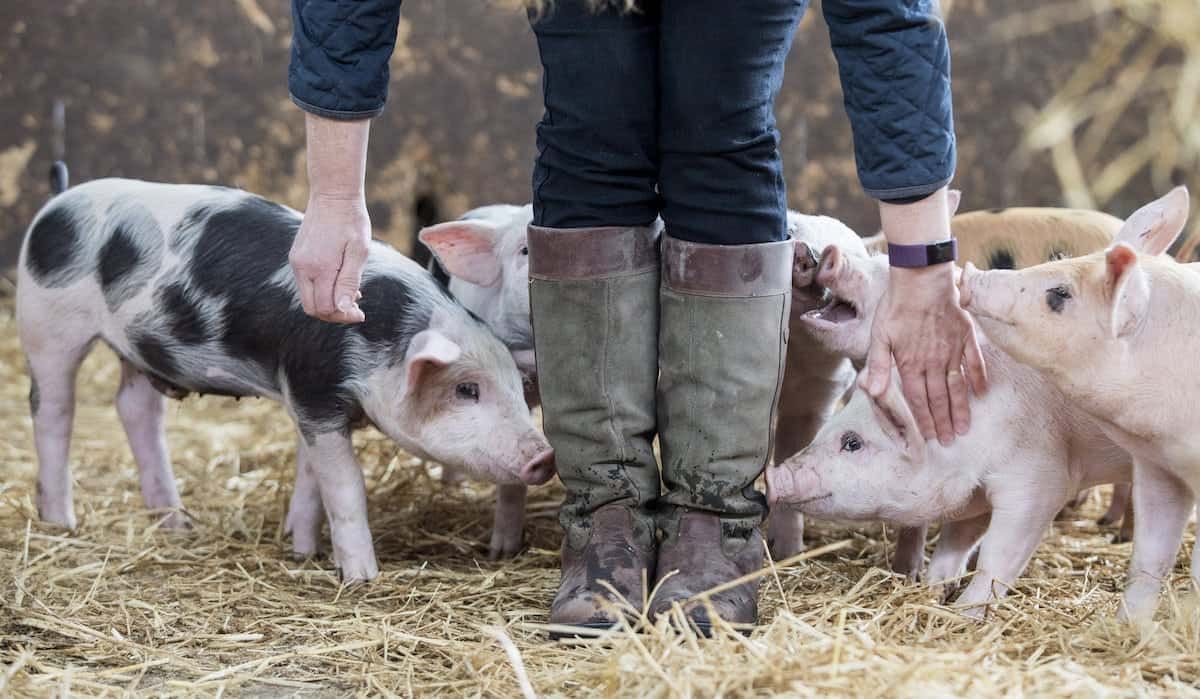Antibiotic-resistant bacteria began with farmers pumping livestock with penicillin six decades ago, according to new research.
Low doses given to animals to boost their growth from the 1950s in the US and Europe fuelled the evolution and spread of the superbugs, say scientists.
Bacteria that can pass on genes resistant to ampicillin – one of the most commonly used antibiotics today – emerged years before human use, the study showed.
The discovery comes weeks after the World Health Organisation called for an end to antibiotic use to promote growth and prevent disease in healthy farm animals.
Study leader Dr Francois-Xavier Weill, of the Pasteur Institute in Paris, said: “Our findings suggest antibiotic residues in farming environments such as soil, waste water and manure may have a much greater impact on the spread of resistance than previously thought.”
Antibiotic resistance kills around 25,000 people a year in Europe.
Many bacteria that cause serious infections in humans like Salmonella have already developed resistance to common antibiotics.
Molecular analysis of historical samples of Salmonella by Dr Weill and colleagues suggests an ampicillin resistance gene (blaTEM-1) emerged in humans in the 1950s,
This was several years before the antibiotic was released onto the pharmaceutical market.

October 13, 2017.
The study published in The Lancet Infectious Diseases also suggests this was caused by the common practice of adding low doses of penicillin to animal feed in the 1950s and 60s.
Ampicillin was the first widely used penicillin for the treatment of infections due to Enterobacteria that includes Salmonella, E. coli and Klebsiella and Shigella.
It was released on the market in the UK in 1961.
Shortly after – between 1962 and 1964 – the first outbreaks of disease in humans caused by ampicillin-resistant strains were identified.
This was the common zoonotic – a disease that can be spread between animals and humans – known as Salmonella enterica var Typhimurium (S. Typhimurium).
The short timeline prompted the researchers to investigate the emergence of ampicillin resistance.
They sequenced the DNA of 288 historical samples of S. Typhimurium collected from humans, animals and food and feed in Europe, Asia, Africa and the US between 1911 and 1969.
The researchers found various ampicillin-resistance genes in 11 isolates (3.8%) from human samples.
Importantly the blaTEM-1 gene was found on plasmids – mobile DNA that can be easily copied and transferred between different bacteria – in three isolates taken from humans in France and Tunisia in 1959 and 1960.
Despite the close proximity between the countries the vectors of ampicillin resistance – mostly from France – differed from those in the strains responsible for the first outbreaks in the UK in the 1960s.
Dr Weill said: “This indicates the early emergence of ampicillin resistance was due to multiple independent acquisitions of these resistant genes by different bacterial populations and their varying spread across several countries.
“The genetic diversity of these ampicillin-resistant isolates, their resistance mechanisms and their geographic distribution indicate ampicillin resistance had already spread in this prominent zoonotic bacterium in the late 1950s – several years before ampicillin became commercially available.”
A report from the UK Central Public Health Laboratory in 1965 suggested low doses of the antibiotic benzylpenicillin routinely added to animal feed could have contributed to ampicillin resistance in the UK – a practice that was banned in 1969.
The study also showed ampicillin resistance genes can be successfully transferred between S. Typhimurium strains after exposure to relatively low levels of penicillin G.
These were similar to those found in the litter of chickens fed with antibiotics in the US in the 1970s.
Dr Weill said: “Although our study cannot identify a causal link between the use of penicillin G and the emergence of transmissible ampicillin-resistance in livestock our results suggest the non-clinical use of penicillins like benzylpenicillin may have encouraged the evolution of resistance genes in the late 1950s.
“There is an urgent need to re-evaluate the use of antibiotics in animals and for a ‘one health’ approach to tackling resistance – recognising bacteria know no borders.
“This must include close international monitoring and surveillance of resistance in both human and animal health.”
Dr Sandra Van Puyvelde and colleagues, of the Institute of Tropical Medicine Antwerp in Belgium, reviewed the study for the journal and said antibiotics have been gradually banned in Europe since 1996 – with a complete ban in 2006.
This has had no adverse effects on animal production – and resulted in a decrease in antibiotic resistance in pigs and poultry.
They said: “Extensive use of antibiotics, however, continues in low-income and middle-income countries and in booming economies, particularly in intense farming such as that of fish and shellfish.”
https://www.thelondoneconomic.com/news/compassion-world-farming-welcomes-compulsory-cctv-englands-abattoirs/11/08/
https://www.thelondoneconomic.com/news/government-votes-animals-cant-feel-pain-emotions/17/11/
https://www.thelondoneconomic.com/tle-pick/peter-roberts-man-fought-make-animals-sentient-beings-european-law/27/11/

